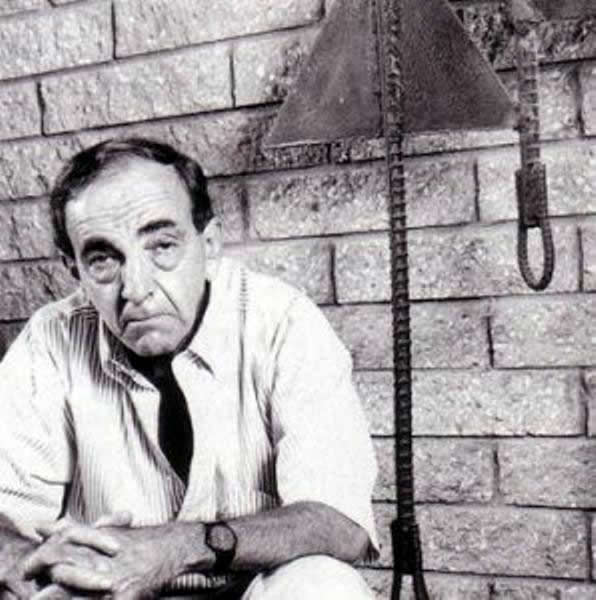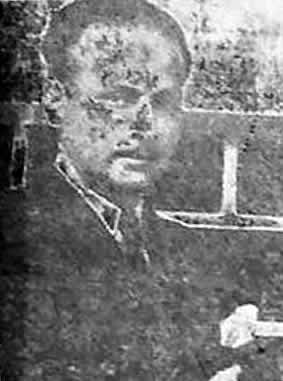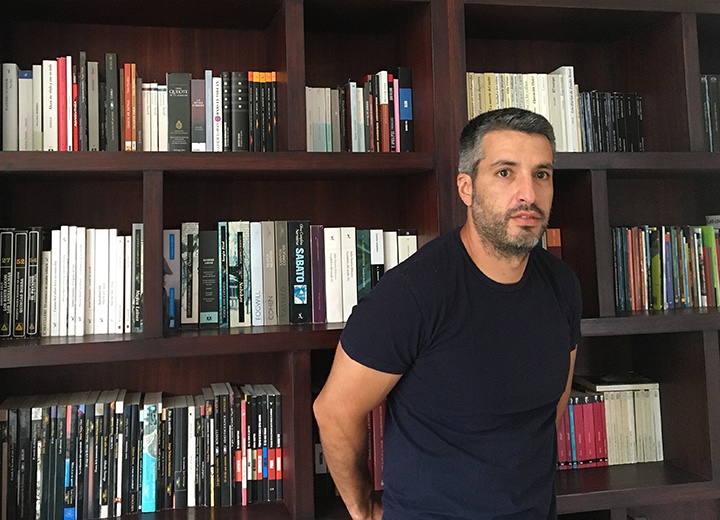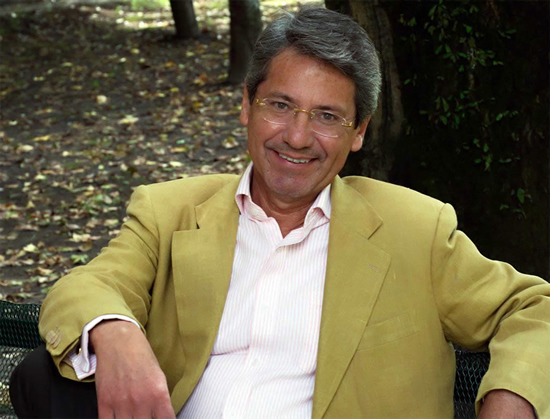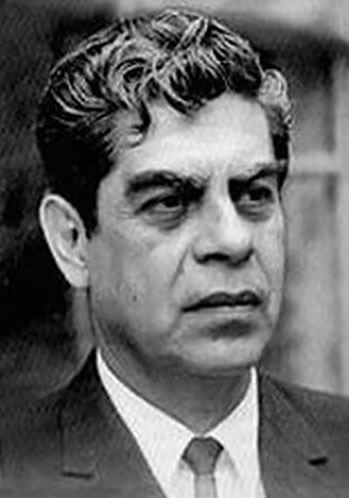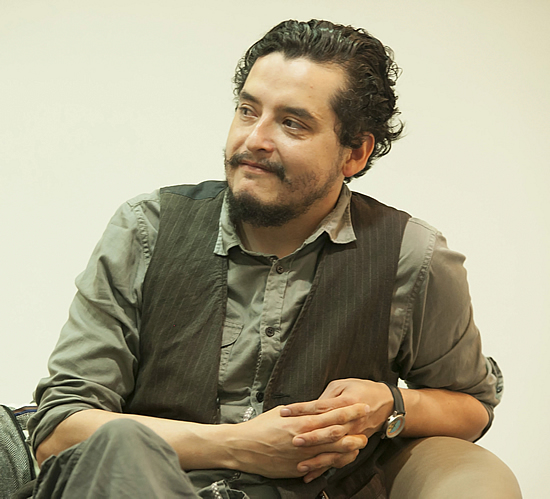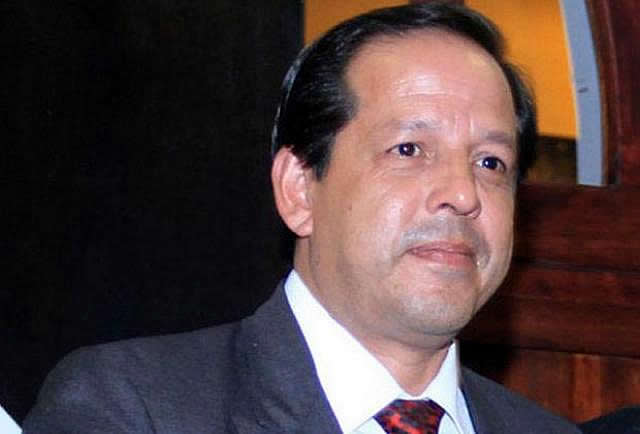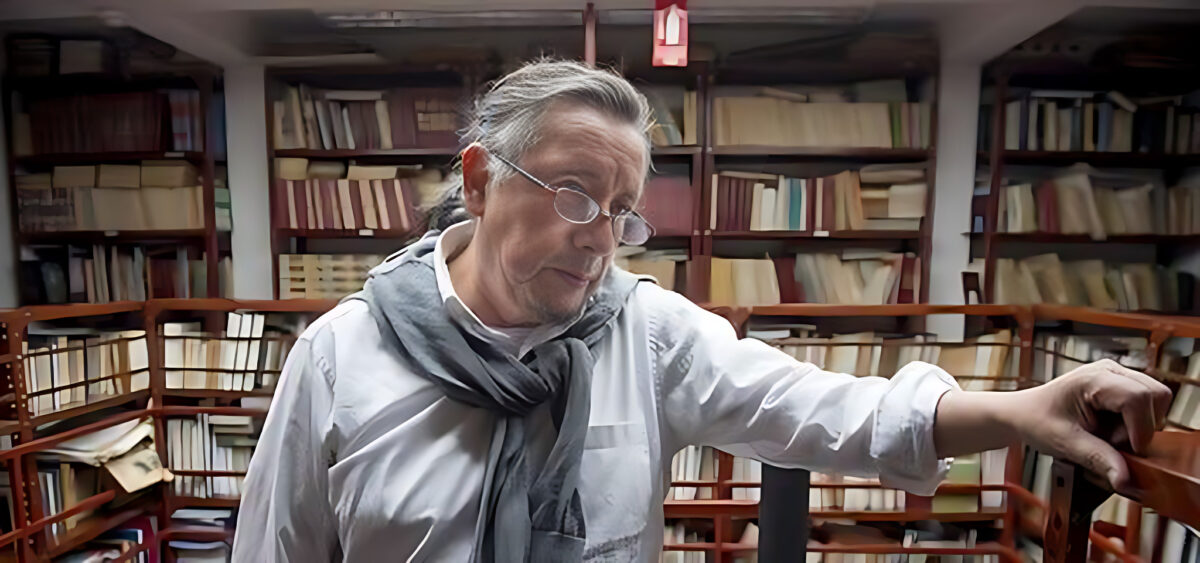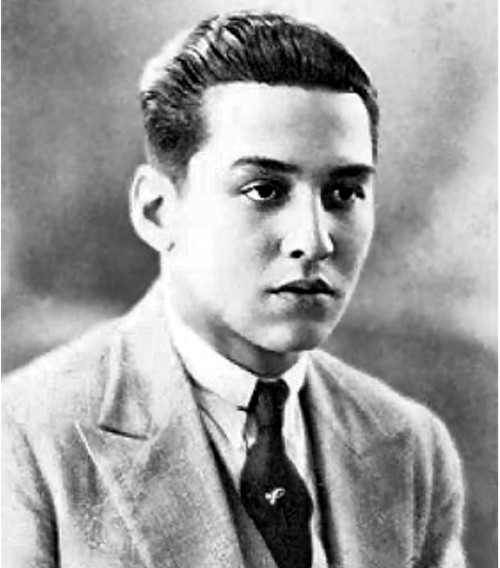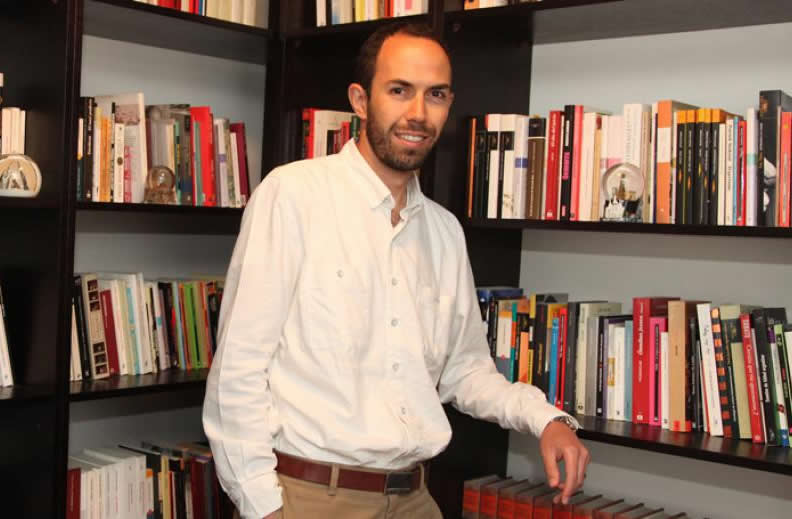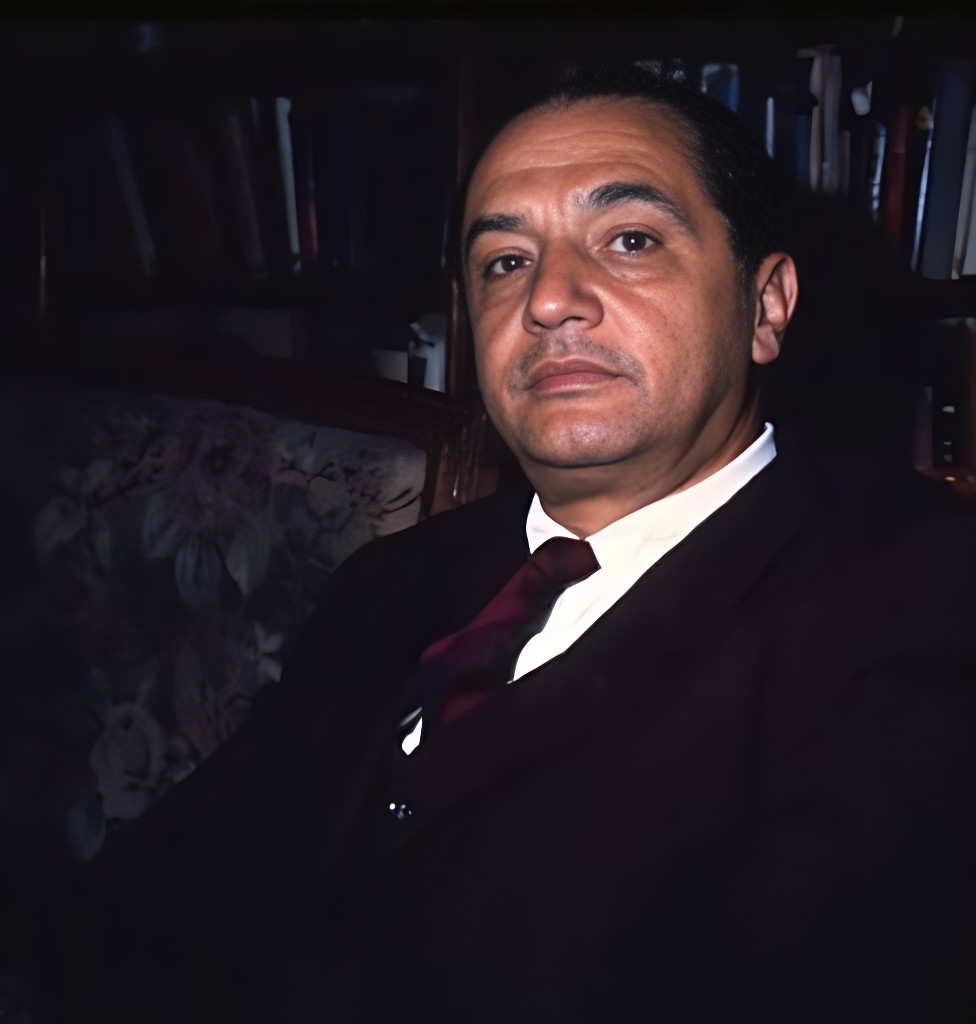Carlos Béjar Portilla (Ambato, February 17, 1938) is a prominent Ecuadorian writer, poet, and lawyer, who significantly developed the science fiction genre in Ecuador during the latter half of the 20th century. His works, such as Simón el mago (1970) and Tribu sí (1981), are known for blending futuristic and fantastical themes with societal commentary, offering a fresh and modern take on speculative fiction. Béjar’s contributions revitalized the genre and expanded its presence in Ecuadorian literature, distinguishing him as a key figure in the country’s literary evolution. He is also a founding member of the Society of Writers of Ecuador.
Continue reading “Carlos Béjar Portilla”Category: Short story writers
Marco Antonio La Mota
Marco Antonio La Mota was an Ecuadorian journalist, poet and short story writer. He was a staff writer for the newspaper El Telegrafo. He was born in Guayaquil, Ecuador. The date of his birth is unknown; it is known he died in 1946. In 1941 La Mota published a book of short stories titled Las huellas de una raza with a foreword by Joaquín Gallegos Lara (1909-1947).
Continue reading “Marco Antonio La Mota”Marcela Ribadeneira
Marcela Ribadeneira (Quito, 1982) is a writer, journalist, film critic, and visual artist, renowned for her profound exploration of themes like mortality, bio-experimentation, and the normalization of terror. Educated in film directing at the Scuola Internazionale di Cinema e Televisione in Rome, her artistic endeavors span across various mediums. Ribadeneira’s notable literary work, “Golems,” reflects her unique blend of literary and cinematic insights. She is the co-founder of the publisher La Linea Negra with her husband, Eduardo Varas. Her stories and journalistic articles have been published in magazine such as: Gatopardo Ecuador, Ronda (Iberia), SoHo, Mundo Diners, Siente (Tame), In and Vamos (Latam).
Continue reading “Marcela Ribadeneira”Andrés Cadena
Andrés Cadena (Quito, 1983) is an award-winning short story writer. His debut collection of short stories “Fuerzas ficticias” (2012) was given the Pichincha Award by the province of Pichincha. His second book “Altanoche” (2016) won the Joaquín Gallegos Lara Prize. His most recent book, “Camino errado” (2020) won the Miguel Donoso Pareja Prize at the Guayaquil International Book Fair.
Continue reading “Andrés Cadena”Daniela Alcívar Bellolio
Daniela Alcívar Bellolio is an Ecuadorian writer, literary critic and feminist. She was born in Guayaquil, Ecuador on March 3, 1982. Alcívar’s first two books were published in 2016, her short story collection Para esta mañana diáfana, and her essay collection Pararrayos, which she wrote while living in Buenos Aires, Argentina. In 2018, her novel Siberia was awarded the Joaquín Gallegos Lara Prize for best novel of the year and also received honorable mention at the La Linares Prize.
Continue reading “Daniela Alcívar Bellolio”Raúl Vallejo
Raúl Vallejo, born César Raúl Enrique Vallejo Corral (Manta, June 28, 1959) is an Ecuadorian novelist, short story writer, poet, politician and academic. He has served as the Minister of Education in the administrations of presidents Rodrigo Borja Cevallos, Alfredo Palacio and Rafael Correa, who also named him Minister of Culture and Patrimony. In the realm of literature, he is one of today’s most prolific writers, and has won many national and international awards, such as the Royal Spanish Academy Award (Spain), José Lezama Lima Poetry Prize (Cuba). In 1999 his books Huellas de amor eterno (short stories) won the Aurelio Espinosa Pólit Prize and Acoso Textual (a novel) won his second Joaquín Gallegos Lara Prize.
Continue reading “Raúl Vallejo”Enrique Gil Gilbert
Enrique Gil Gilbert (Guayaquil, July 8, 1912 – Ibidem, February, 21, 1973) was an Ecuadorian novelist, short story writer, nonfiction writer, politician and teacher. He was the youngest member of the “Guayaquil Group,” a group of realist writers of the 1930s Ecuador. At only eighteen years of age he co-wrote “Los que se van, cuentos del cholo y del motuvio“ (1930) with Demetrio Aguilera Malta and Joaquín Gallegos Lara – a book of short stories which marked the beginning of literary realism in Ecuador. His most famous work is his only novel, “Nuestro pan” (1942), which was translated into English in 1943 as “Our Daily Bread.” His other noteworthy story collections include: “Yunga,” “Relatos de Emanuel” [Tales of Emanuel], and “La cabeza de un niño en un tacho de basura” [The Head of a Child in a Trash Can].
Continue reading “Enrique Gil Gilbert”Roberto Ramírez Paredes
Roberto Ramírez Paredes (Quito, 1982) is an Ecuadorian author and university professor. His literary journey began with his debut novel “La ruta de las imprentas” in 2015, followed by the critically acclaimed “No somos tu clase de gente” in 2018, which won the Aurelio Espinosa Pólit National Literature Prize. His later works, “Evangelio del detective formidable” (2021) and “Tamia, el universo” (2022), further established him as a prominent figure in contemporary literature. Apart from his novels, Paredes has written for notable Ecuadorian newspapers, including El Comercio and Hoy, and has had his short stories published in various anthologies. Currently, he is sharing his literary expertise and knowledge as a professor at the School of Literature at the University of the Arts (UArtes)in Ecuador.
Continue reading “Roberto Ramírez Paredes”Hans Behr
Hans Behr Martínez (Guayaquil, October 31, 1962) is an award-winning Ecuadorian novelist, short story writer, and children’s literature author. In 1999, his novel “Los senderos de Emaús” won the national literature contest organized by the House of Ecuadorian Culture. In 2009, his novel “Maratón” (originally titled Acaso si lloviese) won the Aurelio Espinosa Pólit Prize. In 2014 his novel “Las luces de la felicidad” won the Ángel Felicísimo Rojas National Literature Contest. In 2020, his science fiction novel “Firmamento” won the La Linares Short Novel Prize.
Continue reading “Hans Behr”Alexis Zaldumbide
Alexis Zaldumbide Manosalvas (Quito, 1982), is an Ecuadorian author who has artfully bridged the realms of literature and music, crafting narratives that resonate deeply with themes of solitude, complexity, and the nuanced dance of human emotions. With “Habitaciones con música de fondo,” he captivated the literary world and secured the prestigious XLIII Aurelio Espinosa Pólit Prize in 2018, an accolade that underscored his adeptness at weaving intricate tales that explore the profound depths of isolation against a backdrop of a richly textured reality. Before this notable achievement, Zaldumbide had already demonstrated his versatile talent through children’s literature with “La puerta azul” and “Las valerosas hazañas de Pedro Mayo,” both published in 2013.
Continue reading “Alexis Zaldumbide”Elking Araujo
Elking Raymond Araujo is a writer from Ecuador. He was awarded the Aurelio Espinosa Pólit Prize for his book of short stories “Al pie de la letra” (2008). He also wrote the book “Sin pelos en la lengua (ni en otras partes)” (2017). He currently teaches at the School of Language and Literature at the Pontifical Catholic University of Ecuador. Elking does research in Discourse Analysis, Syntax and Pragmatics.
Continue reading “Elking Araujo”Huilo Ruales
Huilo Ruales Hualca (Ibarra, Ecuador, March 25, 1947) is a prominent Ecuadorian writer whose work spans multiple genres, including novels, short stories, poetry, theater, and chronicles. Known for his exploration of marginalized characters and social outcasts, Ruales’ gritty and poetic prose has garnered significant recognition, including the Premio Joaquín Gallegos Lara (1989) and the Premio Aurelio Espinosa Pólit (1994). His writing has been translated into several languages, and he currently resides in Paris, France.
Continue reading “Huilo Ruales”José de la Cuadra
José de la Cuadra Vargas (September 3, 1903 – February 27, 1941) is considered one of Ecuador’s greatest authors. De la Cuadra was a social realist novelist who wrote the short story La Tigra (1932) and the novel Los Sangurimas (1939). He was a part of the “Guayaquil Group,” a group of young social protest novelists from Guayaquil, Ecuador, in the 1930s, which included Enrique Gil Gilbert, Demetrio Aguilera Malta, Joaqun Gallegos Lara, and Alfredo Pareja Diezcanseco.
Continue reading “José de la Cuadra”José Hidalgo Pallares
José Hidalgo Pallares (Quito, 1980) is an Ecuadorian economist, novelist, and short story writer. He is the author of the short story books La vida oscura (2003) and Historias cercanas (2005, winner of the Joaquín Gallegos Lara Prize), and El manual de la derrota (2019, winner of the Joaquín Gallegos Lara Prize). His novels include Sábados de fútbol (2007) and La búsqueda (2013). His short stories have also been published in anthologies in Ecuador, Argentina, Chile, Cuba and the United Kingdom.
Continue reading “José Hidalgo Pallares”Jorge Icaza
Jorge Icaza Coronel (Quito, June 10, 1906 – Ibidem, May 26, 1978) is indisputably the most renowned Ecuadorian author of the 20th century. His impactful storytelling, exemplified in critically acclaimed novels such as “Huasipungo” and “El Chulla Romero y Flores,” presented an unflinching portrayal of Ecuadorian societal conditions, particularly the trials of indigenous and mestizo communities. Icaza’s “Huasipungo,” which brought the issue of rural exploitation to the global stage, has been translated into more than 15 languages, including two English versions, signifying his far-reaching influence. His status as Ecuador’s literary giant is not just confined to his homeland; his work has significantly shaped Latin American literature. His later role as Ecuador’s ambassador to Russia further exemplifies his multifaceted contributions. Icaza’s legacy has transcended time; his work continues to inspire and influence, marking him as a towering figure in Ecuadorian and Latin American literature of the 20th century.
Continue reading “Jorge Icaza”
